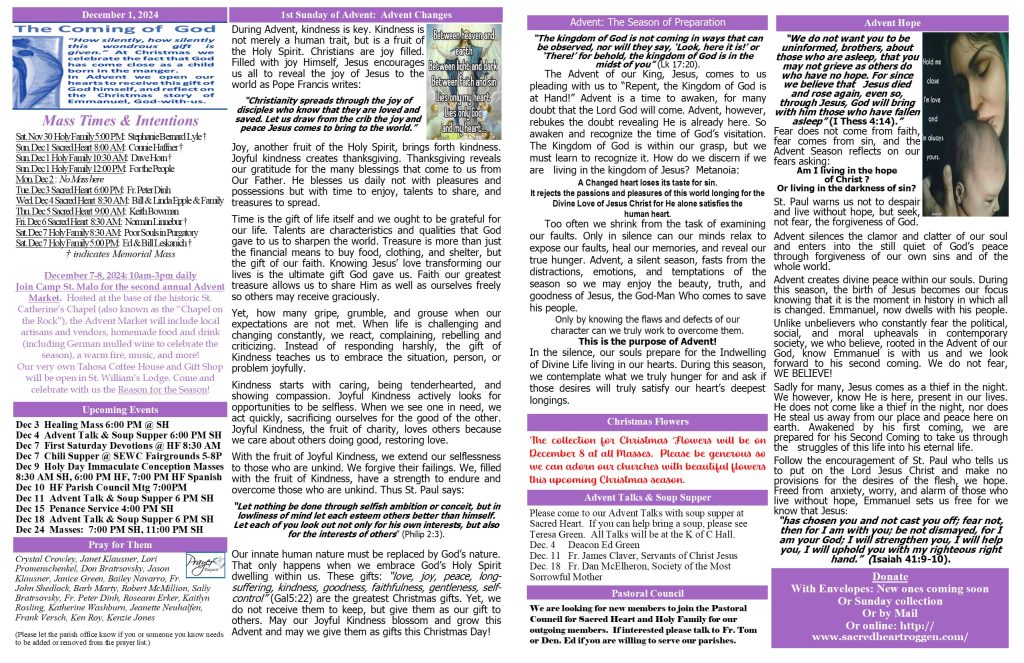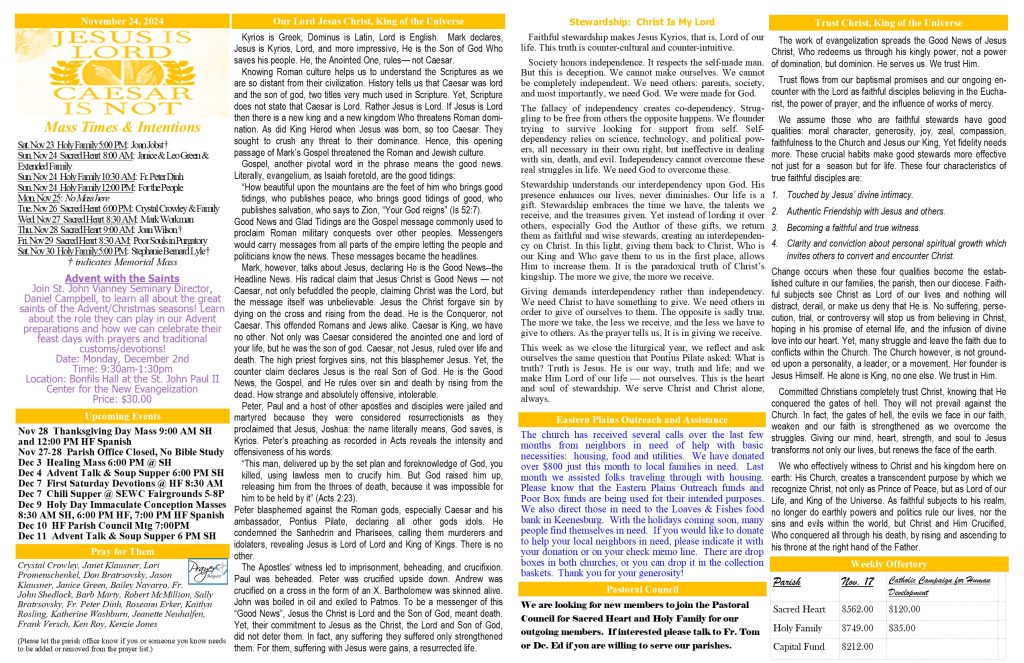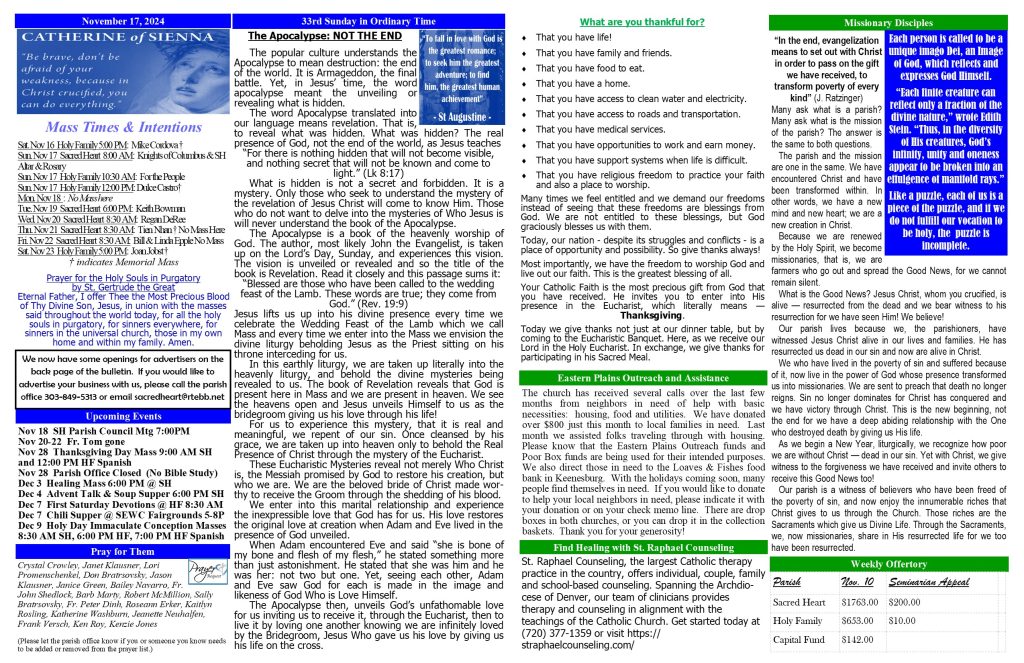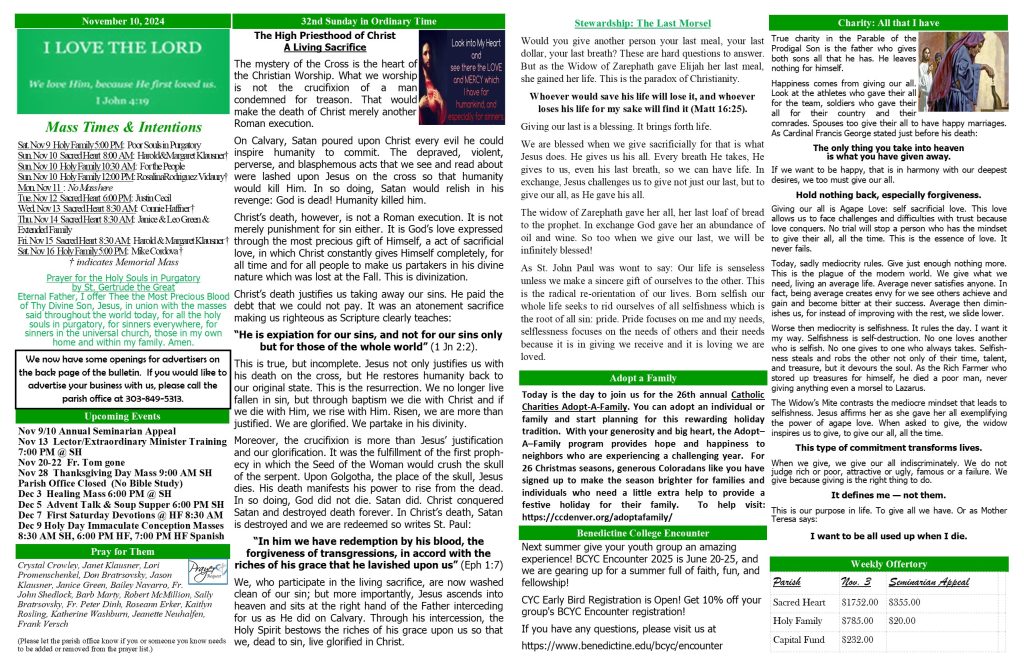Advent Changes
During Advent, kindness is key. Kindness is not merely a human trait, but is a fruit of the Holy Spirit. Christians are joy filled. Filled with joy Himself, Jesus encourages us all to reveal the joy of Jesus to the world as Pope Francis writes:
“Christianity spreads through the joy of disciples who know that they are loved and saved. Let us draw from the crib the joy and peace Jesus comes to bring to the world.”
Joy, another fruit of the Holy Spirit, brings forth kindness. Joyful kindness creates thanksgiving. Thanksgiving reveals our gratitude for the many blessings that come to us from Our Father. He blesses us daily not with pleasures and possessions but with time to enjoy, talents to share, and treasures to spread.
Time is the gift of life itself and we ought to be grateful for our life. Talents are characteristics and qualities that God gave to us to sharpen the world. Treasure is more than just the financial means to buy food, clothing, and shelter, but the gift of our faith. Knowing Jesus’ love transforming our lives is the ultimate gift God gave us. Faith our greatest treasure allows us to share Him as well as ourselves freely so others may receive graciously.
Yet, how many gripe, grumble, and grouse when our expectations are not met. When life is challenging and changing constantly, we react, complaining, rebelling and criticizing. Instead of responding harshly, the gift of Kindness teaches us to embrace the situation, person, or problem joyfully.
Kindness starts with caring, being tenderhearted, and showing compassion. Joyful Kindness actively looks for opportunities to be selfless. When we see one in need, we act quickly, sacrificing ourselves for the good of the other. Joyful Kindness, the fruit of charity, loves others because we care about others doing good, restoring love.
With the fruit of Joyful Kindness, we extend our selflessness to those who are unkind. We forgive their failings. We, filled with the fruit of Kindness, have a strength to endure and overcome those who are unkind. Thus St. Paul says:
“Let nothing be done through selfish ambition or conceit, but in lowliness of mind let each esteem others better than himself. Let each of you look out not only for his own interests, but also for the interests of others” (Philip 2:3).
Our innate human nature must be replaced by God’s nature. That only happens when we embrace God’s Holy Spirit dwelling within us. These gifts: “love, joy, peace, long-suffering, kindness, goodness, faithfulness, gentleness, self-control” (Gal5:22) are the greatest Christmas gifts. Yet, we do not receive them to keep, but give them as our gift to others. May our Joyful Kindness blossom and grow this Advent and may we give them as gifts this Christmas Day!




